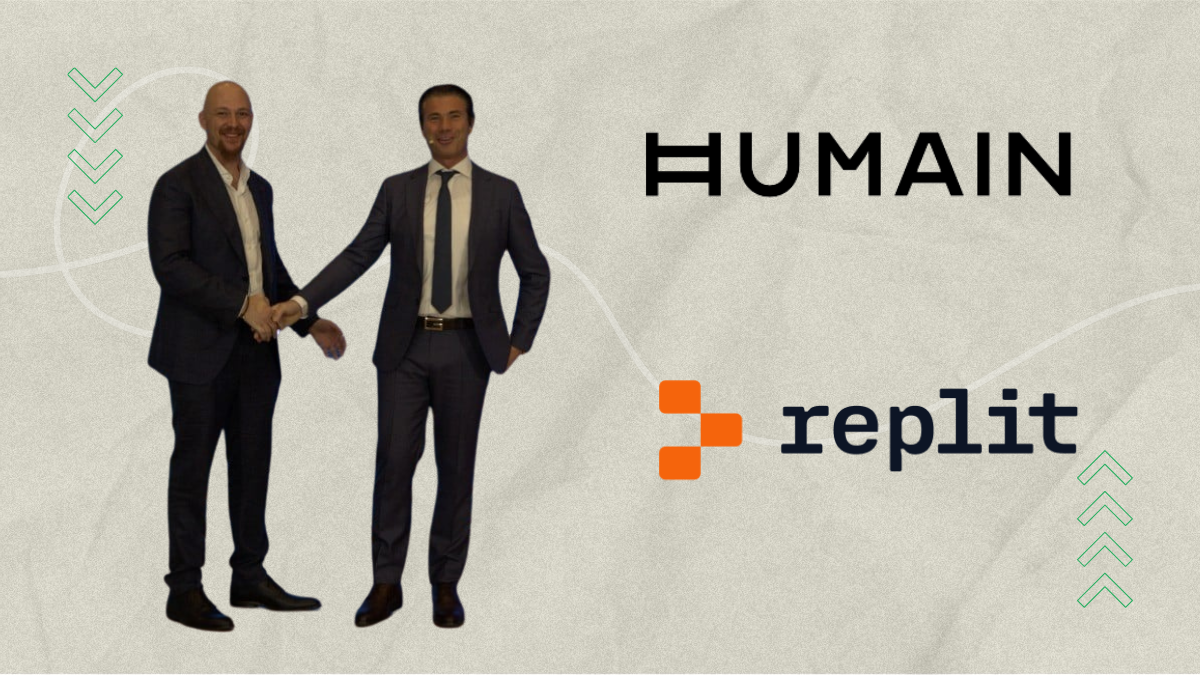HUMAIN and Replit Forge AI-driven Coding Revolution in GCC

4 min
HUMAIN and Replit aim to transform the GCC into a "nation of AI coders.
" Their partnership focuses on making AI app development as easy as writing an email.
Replit's tools empower non-coders to create software, potentially sparking an AI developer movement.
The collaboration supports Saudi Arabia's ambition to lead in AI innovation and digital economy.
This initiative could ignite an AI renaissance, harnessing local talent in the GCC.
It’s not every day that a tech partnership makes you sit up and go, “Well, that’s a clever move.” But that’s pretty much what’s happened with HUMAIN — the Saudi AI firm backed by the Public Investment Fund — shaking hands with Replit, the developer platform known for its “agentic AI” approach. The two unveiled their tie-up during the ninth edition of the Future Investment Initiative (FII9) in Riyadh, setting out to turn the GCC into what they call a “nation of AI coders.” Bold stuff, but not entirely far-fetched given how the region’s tech ambitions are steaming ahead.
The announcement follows HUMAIN’s official launch earlier in 2025, when it first teased the collaboration during the Saudi‑US Investment Forum. The whole idea rests on something quite powerful: teaching not just IT experts, but students, entrepreneurs – even small business owners – to build their own AI-driven apps using simple natural language prompts. No complicated code, no endless debugging. I know from my own chats with young founders through Arageek’s startup community that this kind of accessibility can be a real game-changer.
Both companies say they want to make programming feel as natural as writing an email, unleashing a wave of creativity across the Gulf. Replit, for those not familiar, is already a go-to platform used worldwide for collaborative coding. Its tools are designed to help anyone (and I mean anyone) write, run, and deploy software—even if they’ve never touched a line of code before. That said, the interesting twist here is how early regional institutions, from public education bodies to banks, are already trying their hand with Replit. It’s a sign that this isn’t just a fun tech toy—it’s likely to find its place inside boardrooms and classrooms alike.
Amjad Masad, Replit’s CEO, shared that the first-ever version of Replit was actually built in the Middle East. So this partnership feels a bit like coming full circle. He described it as a way to turn ideas into live software using natural language — in other words, to give everyone the means to build something useful out of thin air. “That’s how we’ll spark a true developer movement in AI,” he said.
On the HUMAIN side, a company spokesperson called the partnership a vital step toward a self-sufficient digital economy, one where local talent leads AI innovation rather than just consuming it. The aim, they added, is to make Saudi Arabia “a nation of AI programmers,” letting innovation take root at home and branch out globally. I reckon that vision hits the right note — ambitious yet practical, especially given the country’s push to strengthen its data infrastructure and local capabilities.
HUMAIN itself isn’t your average tech startup. It covers four major areas: next-gen data centres, high-performance computing infrastructure, advanced AI models (including, fascinatingly, what it claims is the most sophisticated Arabic language model yet built), and practical AI solutions tailored to real-world sectors. Having such range means it can bridge the gap between research labs and day-to-day business needs. And believe it or not, that’s often the missing link in many AI ecosystems.
All in all, this collaboration feels spot on for both sides. Replit gets a powerful regional ally; HUMAIN gains a globally tested platform that fits neatly into its mission. The two together could well energise a new generation of coders who think and build in Arabic first. It’s still early days, sure, and the road ahead might be a bit of a faff at times, but if it works as intended, the GCC could see its very own AI renaissance. And I, for one, am chuffed to bits at the thought of more local talent shaping the future of tech right here.
(Oh, and yes, there’s plenty left to watch as HUMAIN grows — its focus on national AI sovereignty is definately one to keep an eye on.)
🚀 Got exciting news to share?
If you're a startup founder, VC, or PR agency with big updates—funding rounds, product launches 📢, or company milestones 🎉 — AraGeek English wants to hear from you!
✉️ Send Us Your Story 👇
 AI
AI Saudi Arabia
Saudi Arabia UAE
UAE Egypt
Egypt








